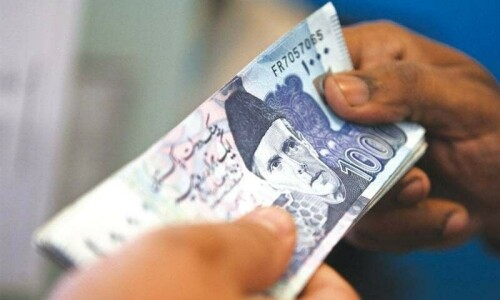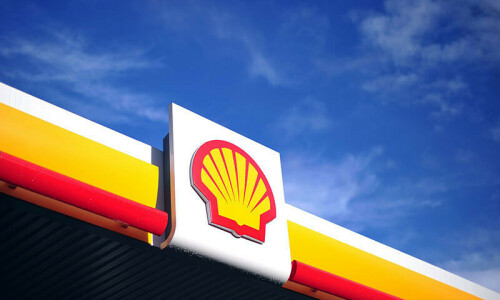LONDON, June 20: Oil prices stormed higher on Friday as Opec members hit out at consumer demands for more crude ahead of a high-level weekend meeting in the Saudi city of Jeddah to discuss rocketing fuel costs.
Prices had fallen sharply on Thursday after Saudi Arabia, the world’s biggest producer, announced a production hike of 200,000 barrels per day.
New York’s main oil futures contract, light sweet crude for July delivery, soared $4.27 to $136.20 per barrel in Friday trade, having hit an all-time high of $139.89 on Monday.
London’s Brent North Sea crude for August jumped $3.95 to $135.95 per barrel, compared with its record peak of $139.32 on Monday.
“The focus for oil prices (Friday) will be the Jeddah Energy Conference this weekend,” said analysts at Barclays Capital in a note sent to clients.
“Set against the backdrop of mounting recent international tensions about oil prices and a drift towards internal regulatory intervention in several countries, the Jeddah meeting has perhaps become symbolic of a collection of potential policy watersheds,” they said.
Saudi Arabia is widely expected to formally announce an output increase in Jeddah.
Other leading members of the Organisation of Petroleum Exporting Countries, the cartel, which produces 40 per cent of world oil, claim that supplies are adequate to meet demand.
Opec president Chakib Khelil said on Friday it was illogical and irrational to ask the oil cartel to increase output so as to take the pressure off soaring prices, the Algerie Presse Service (APS) news agency reported.
Meanwhile, Iran said on Friday that increased output would not affect skyrocketing prices.
Consumers such as the United States claim that major oil producers are not producing enough to help cool mounting prices. Saudi Arabia is believed to be the only Opec member with significant spare output capacity.
Analysts meanwhile argue that further production increases would still be unable to keep up with demand, notably in energy hungry nations such as China and India.
Major oil producers in turn blame the soaring cost of fuel on speculative trade, political unrest and a weak US currency, which makes dollar-priced goods such as oil cheaper for foreign buyers.
Venezuela, one of two Latin American countries in Opec and a producer that firmly opposes greater output as it seeks to maximise earnings, said overnight that it had decided against sending a delegation to Jeddah.—AFP















































Dear visitor, the comments section is undergoing an overhaul and will return soon.